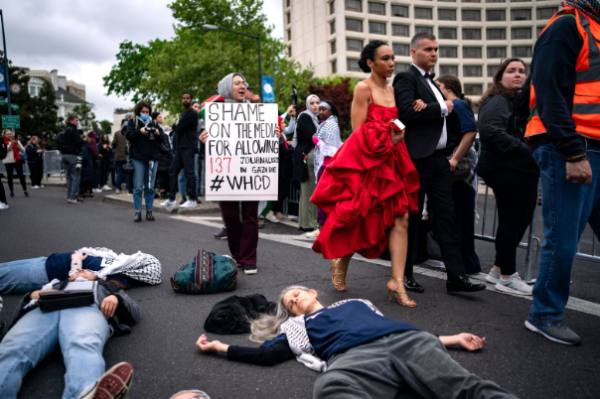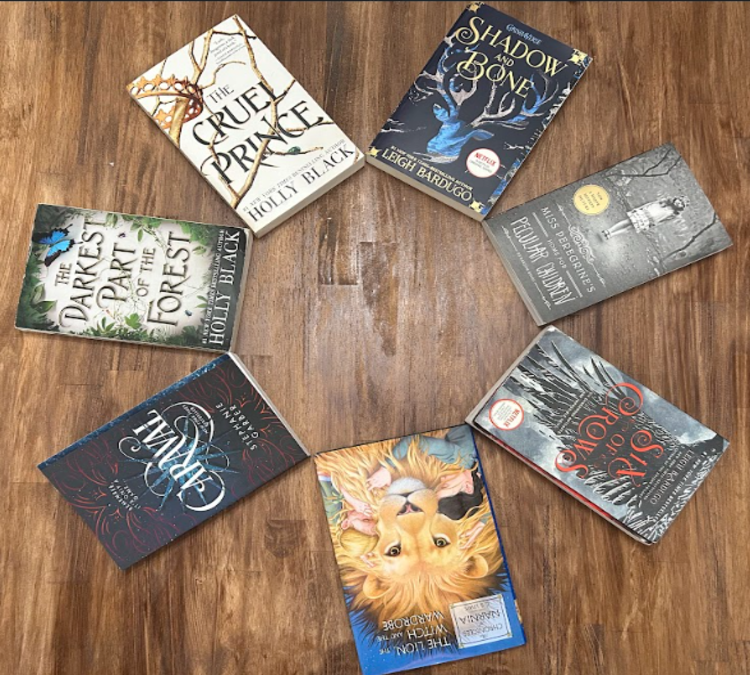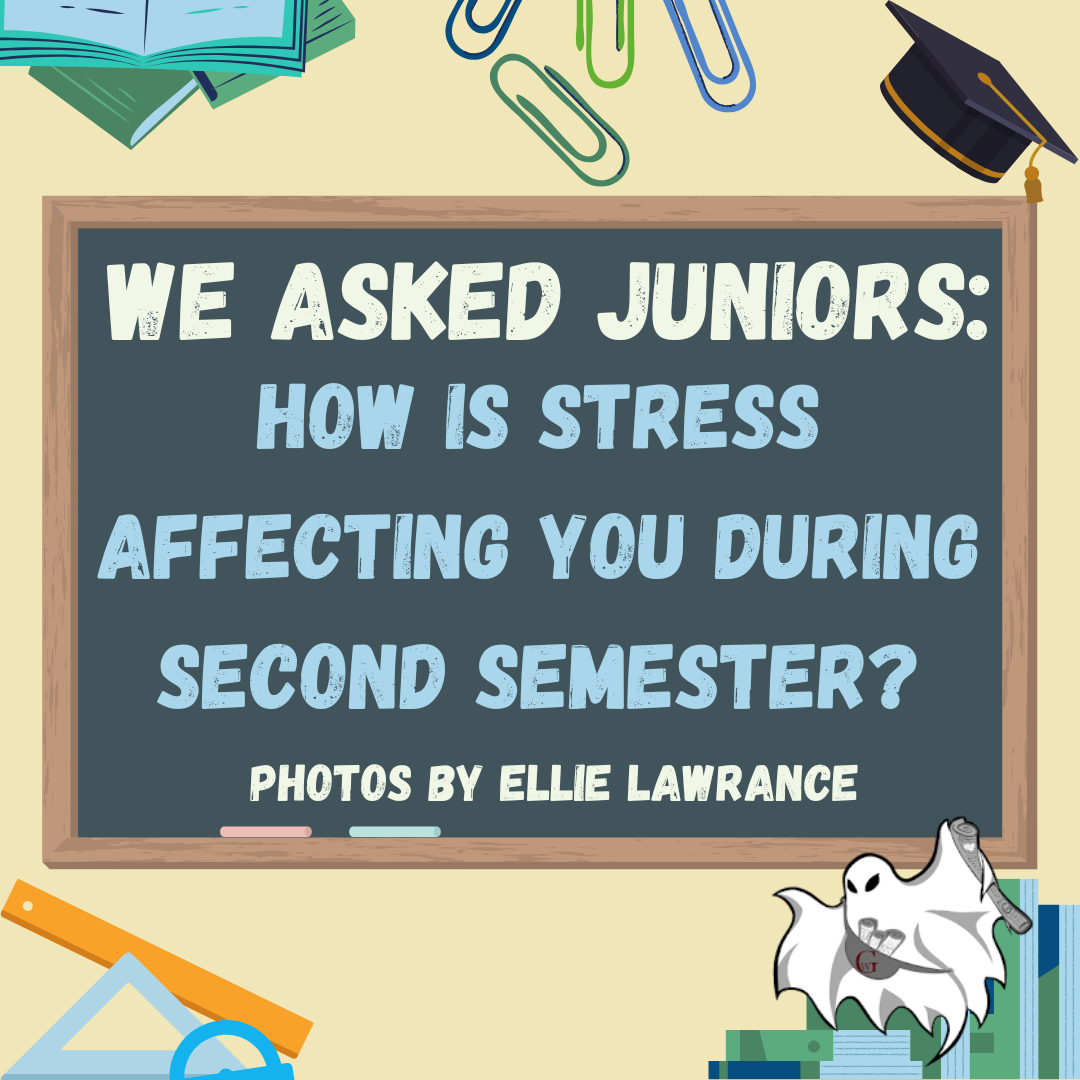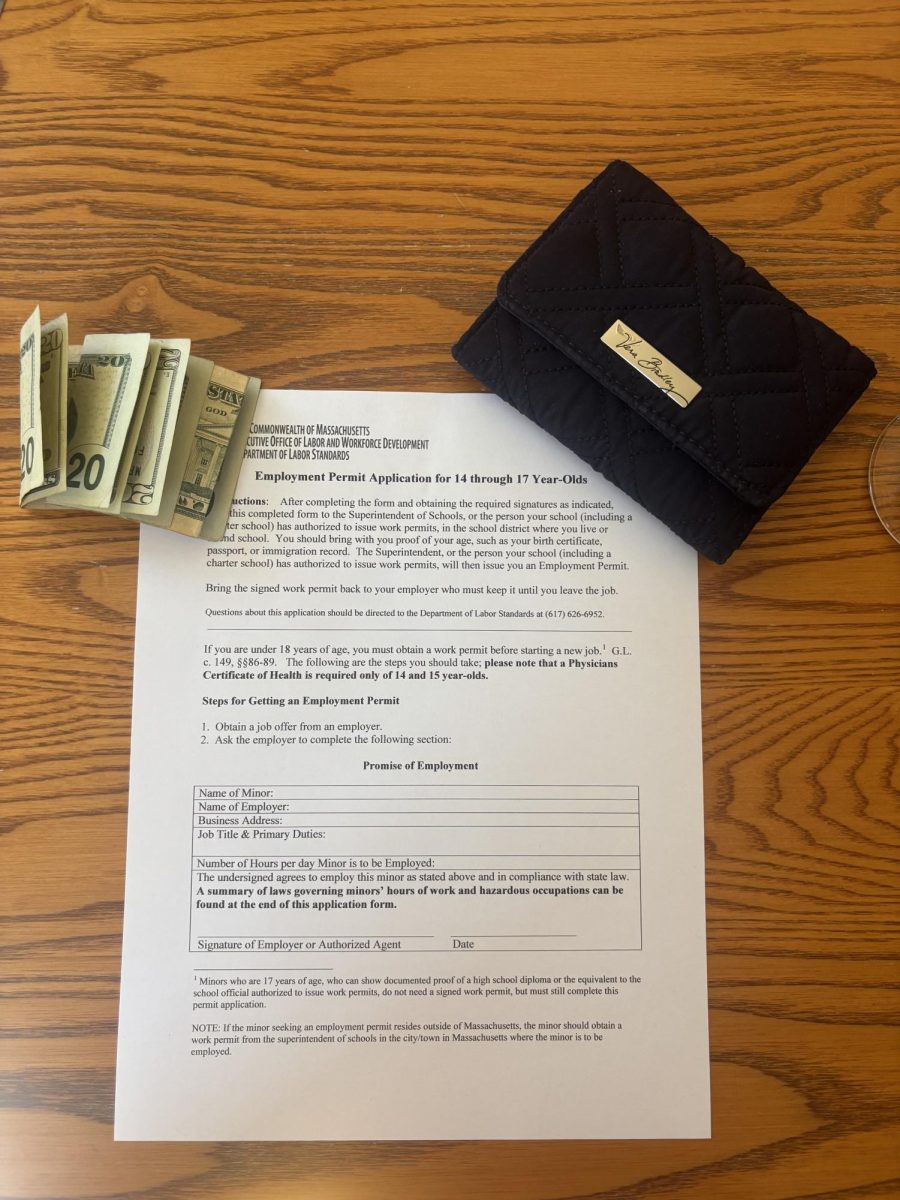
You walk over to the dystopia section of your local bookstore, and pick up the first book you see. You flip to the first page and read about high society members attending a gala in elaborate clothing whilst protesters stand outside fighting against genocide.
You flip to the next page, and read about a convicted felon continuing his run for presidency. You flip again. Wars, famine, poverty.
You double back and realize, this is not the latest sequel to The Hunger Games, this is real life.
This year, in my English class, we read the novel Fahrenheit 451 by Ray Bradbury, the story of Guy Montag, a fireman who is living in a dystopian version of the United States of America, where books are banned and firemen burn any that are discovered. In this society, citizens are complicit with what the officials tell them to do and are under the illusion that they are living in a perfect world. This illusion went so far that they were unaware of wars and conflicts going on outside of their bubble. The novel incorporates many different dystopian characteristics, and as we analyzed its pages, I began to wonder, how different is it from our reality, if at all?
According to Read–Write-Think, dystopia is defined as a “futuristic, imagined universe in which oppressive societal control and the illusion of a perfect society are maintained” through different forms of oppressive control. Dystopias, through an exaggerated worst-case scenario, make a criticism about a current trend, societal norm, or political system. Some elements of dystopia include, but are not limited to, a figurehead or concept being worshipped by citizens of the society, citizens having fear of the outside world, citizens living in a dehumanized state, and society being an illusion of a perfect world, or utopia.
To live in a dehumanized state is to live in denial that there is cruelty or suffering going on beyond one’s scope. In other words, denying that humans are capable of inflicting pain upon others, and primarily believing in everyone’s inherent goodness.
Living in a town such as Westford can have this effect in a way. We have found ourselves in a bubble where we are often completely closed off from the rest of the world. This happens in most middle-class areas, and the effects of this can result in large detachment.
In a middle-class, suburban town, smaller issues sometimes become our main focus, and we lose sight of the big issues that are happening beyond our bubble. However, these issues are so widespread because they affect a large number of people, including members of our own communities. Being ignorant to widespread issues means being ignorant to an issue that could be deeply hurting someone close to you, like a friend, neighbor, or colleague.
Throughout the month of May, headlines and tabloids were consumed by what celebrities were wearing to what is considered to be the world’s most prestigious and glamorous fashion event, the MET Gala. The most high profile members of society paid $75,000 for a ticket to the glamorous event, however, the reality for the rest of the world is anything but glamorous.
On the day of the MET Gala, Israel launched its first attacks on Rafah. Currently in the Middle East, there is a genocide and humanitarian crisis occurring against the Palestinian people. At the time of writing this, at least 37,202 Palestinians have been killed and 84,932 have been wounded. The history of this conflict is very long and saddening, and many people have very extreme viewpoints on which side is in the right and which is in the wrong. However, it is important to take a step back and understand that this is a conflict that has two sides that are upset because they are extremely hurt and grieving for their people. In times like these, our humanity is what should unite us. Attending an event like the MET Gala on this same day, and ignoring the protests that were occurring right down the street, showcases a level of ignorance that circles back to citizens living in a dehumanized state.
There are many conflicts that are happening throughout the world that do not make the headlines, and many people are unaware that they are even occurring. Some of these include the crises in Syria, Myanmar, Sudan, Venezuela, Yemen, Democratic Republic of Congo, Haiti, Afghanistan, and Somalia.
In a middle class town like ours, it’s hard to feel the issues going on in the world around us because oftentimes it is not directly impacting us. It is understandable to get swept up in the everyday of life and get distracted by the little things. However, even if it is just five to ten minutes every few days, by updating yourself on world issues, or sharing a social media post or signing a petition, you are spreading awareness and taking action. Keeping yourself educated on topics and spreading awareness about an issue helps to amplify voices that may not be able to advocate for themselves.
Being aware of these issues and standing up for humanity is important to make sure that we don’t, as a society, become a dystopia.
Some petitions and donation sites to get started with are linked below.
Provide School Supplies To 500 Kids In Myanmar
Open Call for an Immediate Ceasefire in the Gaza Strip and Israel







